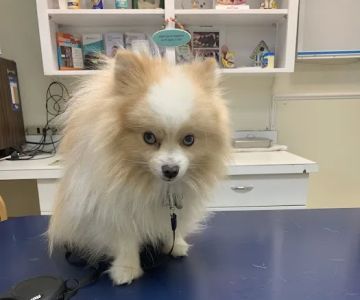Veterinary Advice for Pet Nutrition: Ensuring a Healthy Diet for Your Pet
- Why Pet Nutrition Matters
- Understanding Your Pet's Nutritional Needs
- Choosing the Right Pet Food
- Common Mistakes in Pet Nutrition
- Tips for Maintaining a Healthy Pet Diet
- How to Get Expert Pet Nutrition Advice
1. Why Pet Nutrition Matters
As pet owners, one of the most important aspects of caring for our furry friends is providing them with the proper nutrition. Just like humans, pets need a balanced diet to stay healthy, strong, and active. Poor nutrition can lead to a variety of health issues such as obesity, malnutrition, digestive problems, and even chronic conditions like diabetes or kidney disease. Therefore, understanding and following proper pet nutrition guidelines is essential for ensuring your pet lives a long, happy, and healthy life.
Veterinary advice for pet nutrition is crucial because veterinarians are trained to understand the specific dietary needs of animals. They know how to balance proteins, fats, carbohydrates, vitamins, and minerals in your pet’s food to support their unique requirements. Each species, breed, and age group has different needs, and a good veterinary nutritionist can help you navigate this complex area to find the best diet for your pet.
2. Understanding Your Pet's Nutritional Needs
Different pets have different nutritional requirements based on factors such as age, size, breed, and activity level. For example, puppies and kittens need more protein and fat for growth, while senior pets may require fewer calories to prevent weight gain. Here are some important considerations for understanding your pet's nutritional needs:
1. Age: A pet's nutritional needs will change as they age. Puppies and kittens need more energy and nutrients to support their growth, while older pets may need a diet that supports joint health and weight management.
2. Size and Breed: Larger breeds, such as Great Danes or Saint Bernards, often have different nutritional requirements compared to smaller breeds like Chihuahuas. Large dogs, for example, may require a lower calorie diet to prevent obesity, while small breed dogs may need more calorie-dense foods due to their faster metabolism.
3. Activity Level: Active pets, such as working dogs or cats that love to explore, need more calories and protein than sedentary pets. Conversely, inactive pets might require a lower-calorie diet to avoid excess weight gain.
3. Choosing the Right Pet Food
When it comes to pet food, not all options are created equal. Choosing the right pet food is one of the most critical decisions you’ll make as a pet owner. Veterinary advice for pet nutrition can guide you in selecting food that meets your pet's specific needs. Here are some key considerations:
1. Read Labels Carefully: Pet food labels can provide valuable information about the ingredients and nutritional value of the food. Look for high-quality protein sources (such as chicken, beef, or fish) as the first ingredient, and ensure that the food contains a balanced mix of carbohydrates, fats, vitamins, and minerals.
2. Consider Dry vs. Wet Food: Both dry and wet pet food have their benefits. Dry food is more convenient and helps with dental health, while wet food provides more moisture, which is particularly beneficial for pets that don’t drink enough water. A mix of both may be ideal for some pets.
3. Special Diets: Some pets may require special diets due to allergies, sensitivities, or medical conditions. For example, pets with food allergies may need a limited-ingredient diet, while overweight pets might benefit from a weight management formula. Consult with your vet to determine if your pet needs a specialized diet.
4. Common Mistakes in Pet Nutrition
Even the most well-intentioned pet owners can make mistakes when it comes to feeding their pets. Some common mistakes in pet nutrition include:
1. Overfeeding: It’s easy to overfeed your pet, especially when they give you those sad eyes begging for food. Overfeeding can lead to obesity, which can cause a range of health problems. Be mindful of portion sizes and follow your veterinarian's advice on how much to feed based on your pet's size and activity level.
2. Feeding Human Food: Many pet owners like to treat their pets with scraps from the table, but this can be harmful. Foods like chocolate, grapes, and onions are toxic to pets, while others can cause digestive upset or obesity. Stick to pet-safe treats and food specifically formulated for pets.
3. Ignoring Nutritional Needs: Each pet has different nutritional needs, and not addressing them can lead to health problems. Whether it’s a senior dog needing a joint health supplement or a kitten needing extra protein, understanding these needs is key to maintaining a healthy pet.
5. Tips for Maintaining a Healthy Pet Diet
Maintaining a healthy diet for your pet is an ongoing process. Here are some tips to help you keep your pet’s diet on track:
1. Monitor Weight and Condition: Keep track of your pet’s weight and body condition. If your pet is gaining or losing weight unexpectedly, consult with your vet to adjust their diet accordingly.
2. Regular Vet Checkups: Regular veterinary checkups are important for monitoring your pet’s health and ensuring their nutritional needs are being met. Your vet can provide valuable guidance on adjusting their diet based on health changes, age, or lifestyle.
3. Stay Hydrated: Ensure your pet always has access to fresh water, especially if they’re eating dry food. Dehydration can lead to a variety of health issues, including kidney problems, so keeping them hydrated is essential for their overall well-being.
6. How to Get Expert Pet Nutrition Advice
If you’re unsure about the best diet for your pet or if your pet has specific health concerns, consulting with a professional is a great way to get expert advice. Veterinary advice for pet nutrition can be invaluable in ensuring your pet gets the nutrients they need for optimal health. At Hidden Brook Veterinary, we offer personalized nutritional consultations for your pets to ensure they’re getting the right diet for their unique needs. Our veterinary nutrition experts can guide you in selecting the best food, supplements, and feeding plans tailored to your pet's health and lifestyle.
Whether you're managing a specific health condition or just want to ensure your pet's diet is as healthy as possible, our team is here to help. Visit Hidden Brook Veterinary today to learn more about how we can assist with your pet’s nutritional needs and help you keep them healthy and happy for years to come.











